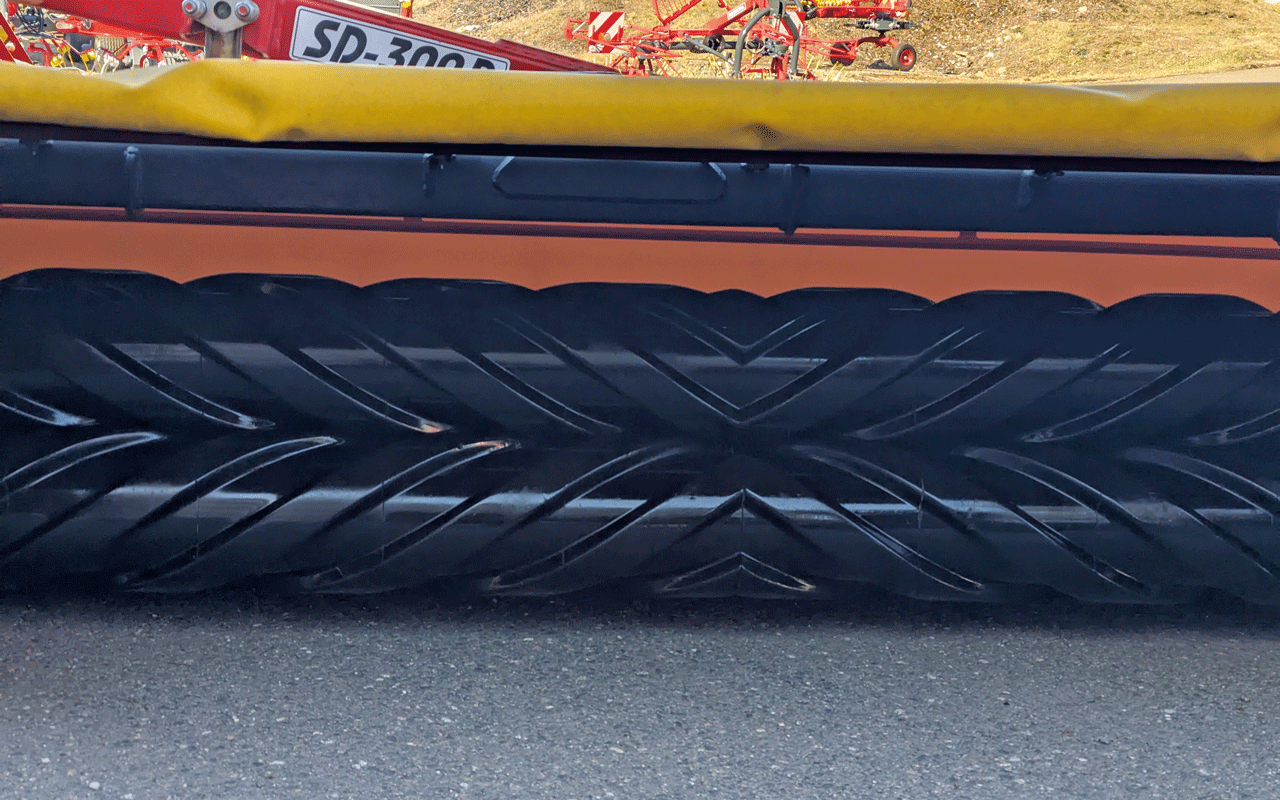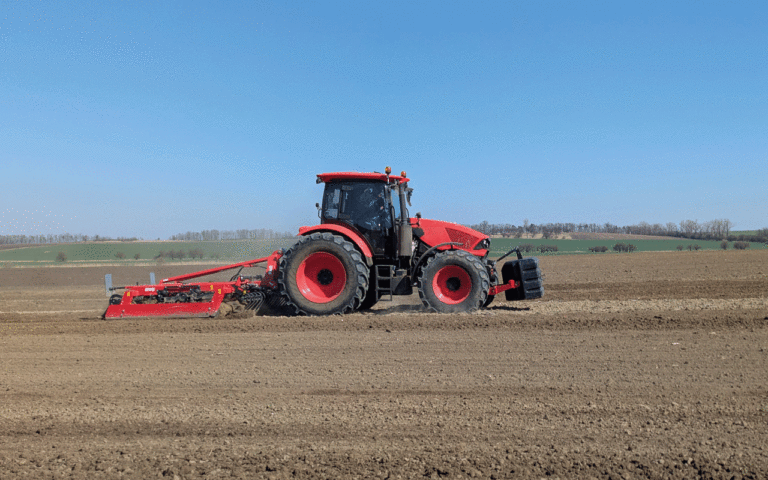The Czech agricultural industry is an interesting one. On the border of what’s considered central and eastern Europe, with many disagreements on which countries fit into which region, it could be seen as a gateway between the West and the East.
Part of this is due to the recent political history, which looms large over industry in the country, and another aspect is the scale of its agricultural sector.
According to data collected by the Czech Agricultural and Forestry Trade Association (AZET) in 2020, the Czech Republic had the largest average farm size in the EU, at 121ha.
While still far below the average farm size in a place like Ukraine, it is more than 20ha larger than the next country on the list (Slovakia) and more than 50ha larger than either Germany or France. The area of farmland is 3.5m hectares, about 45% of the total land area, with 71% farmed in arable rotations.
Despite being a relatively small country, you can see the focus on large-scale arable farming, like in eastern European countries.
The Czech Republic is a net importer of agricultural machinery, with the value of imports typically 10-15% higher than exports. However, until the global decline in sales seen over the past 18 months, it looked like this was about to change, with exports exceeding €1bn for only the second year and being just 0.59% below imports.
This is despite the Russian invasion of Ukraine happening in February 2022, at which point many Czech brands removed their products from the Russian market in solidarity (a major market for the country) and sought export opportunities elsewhere.
Moving fast
Sitting at the top of the Czech agricultural industry, and likely the most well-known brand today, is Bednar. Developing out of the export business Strom Export, established in 1997, the company is family-owned and exports to 40 countries.
Until the global slowdown in sales, it had seen consistent year-on-year growth between 2009 and 2023, peaking at a €200m turnover. According to marketing director David Ryčl, ‘no company in central Europe is moving this fast’.
Bednar also bucks the trend for exports in the Czech Republic by exporting about 93% of machinery made in its factory.
“We expect this to grow as well,” adds David. “The market in the Czech Republic is quite limited when compared to other areas of the world, especially when our focus is on wider machines and increased productivity.”
Recent investment has been focused on increasing the size of the factory, based just outside Rychnov nad Kněžnou in the Hradec Králové region, not far from the Polish border. David says sales were previously limited by bottlenecks in the factory.
Over the past 12 months, the company has expanded both halls on the site, with scope to develop further, and installed an automatic sand-blasting line that will run alongside the manual unit. This, along with conveyors and extra storage and control gates, is the first stage of a fully automated paint line.
Bednar has also used artificial intelligence to monitor and adjust production plans, reportedly increasing productivity across the factory to 90%.
Further enabling the company to move quickly, there is no set production line for the different products. Instead, the layout of the halls can be changed quickly to suit demand.
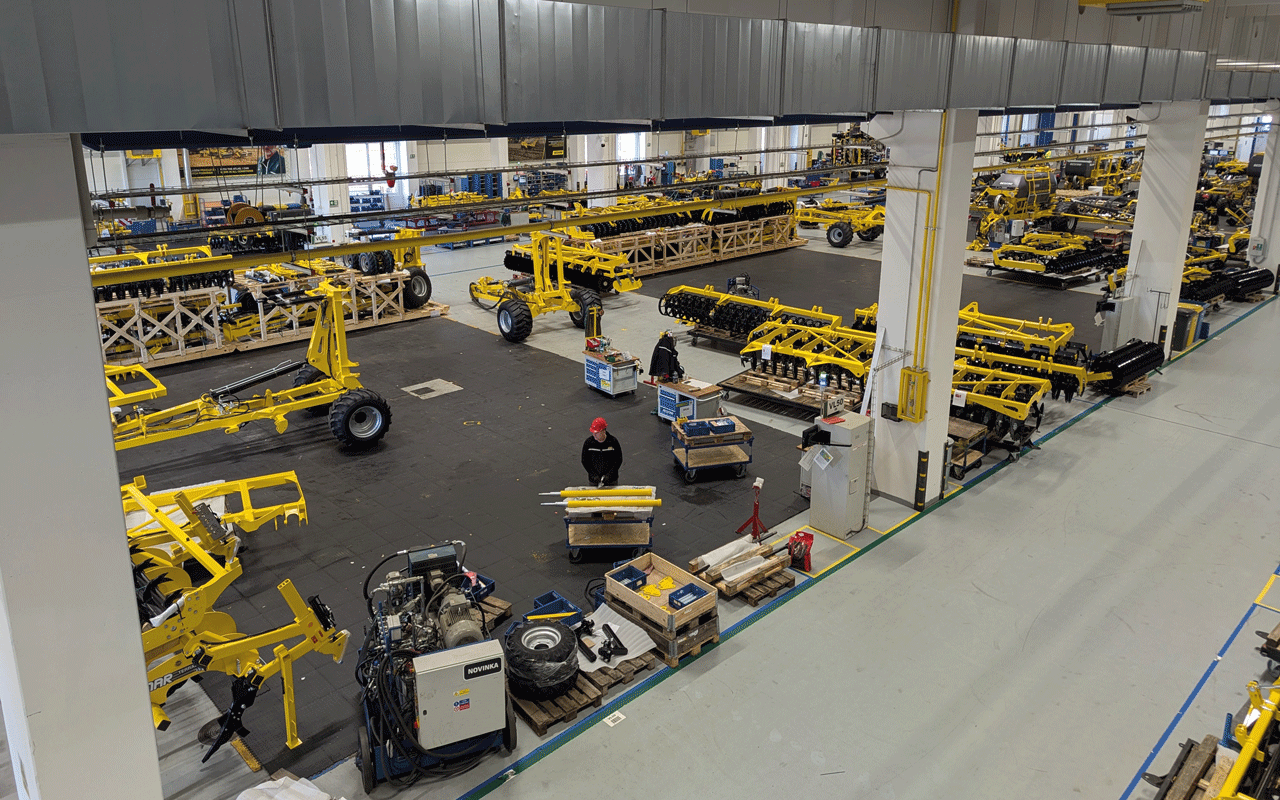
Products on the way
While we were at the Bednar factory, the company announced a series of new products, including the Speed Chop SC_F front-mounted cutting roller.
Designed to be used in combination with a Directo No drill, or one of the company’s Swifterdisc cultivators, it comprises two 460mm knife rollers and is available in working widths from 3m up to 6m.
Designed for high speeds, the two rollers are fitted with interchangeable blades, made with high-strength steel, which chop and bruise crop residue and cover crops ahead of tillage or sowing operations.
For larger-scale operations, a trailed roller unit has also been developed, designed more with Australia, the US and Brazil in mind, according to product marketing manager Ondřej Adamčík, though there may be some European interest.
The Duracut TE offers working widths of 7.5m and 12.5m, comprising a segmented 940mm roller with interchangeable Hardox blades. To maximise the cutting ability and incorporation of residues, the roller can also be fitted with water for an operating weight of 1.24t/m.
A host of new seeding options were also announced, with the new Corsa CN disc toolbar available in a 6m working width. This can be combined with the Katara KN power harrow for single-pass tillage and seeding, or linked to a hopper for low-disturbance operation.
Options include a hydraulic levelling board, a tyre packer at the rear for consolidation and a range of coulters to suit.
To suit differing conditions, the same toolbar design has been used to create the Girona GN machine, which uses tine coulters instead of discs.
When using a front-mounted or trailed seed hopper, the company has also introduced Farm Link; a mobile app that enables calibration to be completed without getting into the cab. The software can also reportedly help with choosing seeding rollers, working speed and application rates.
Rounding out the launches was the announcement of an 8m Directo No no-till drill. Based on the same specification as the existing 6m machine, this unit can be fitted with hydraulically adjustable fertiliser coulters and half-width shut-off.
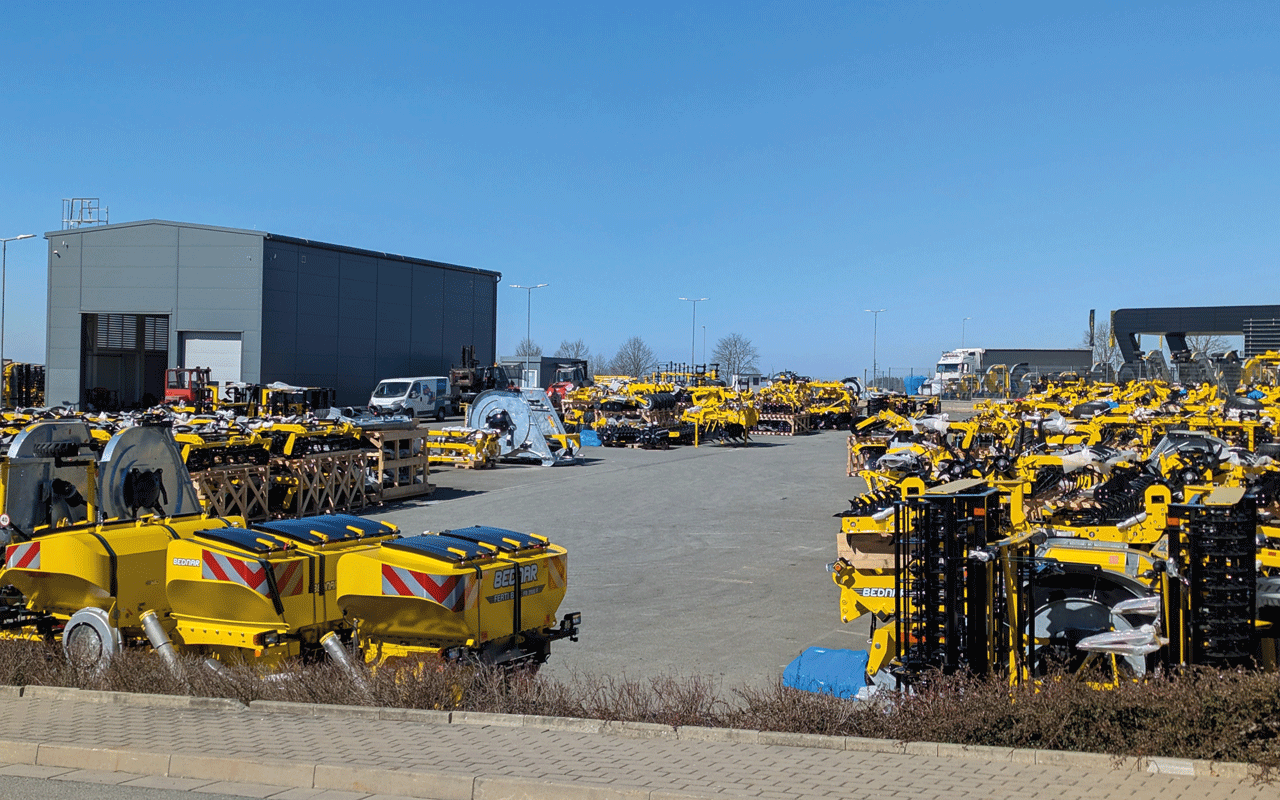
A new chapter
If Bednar is the best-known Czech brand on the market, it took that position from Zetor. The tractor manufacturer will celebrate 80 years of operation next year, but has had a tumultuous few years.
Despite a strong market in India and other parts of South-East Asia, the company had struggled to keep pace with competitive brands in Europe, leading to a significant restructuring at the Brno factory.
“The regular changes in emissions regulations made it increasingly difficult to economically produce our own engines and transmissions,” explains sales and marketing director Adam Žert.
This was compounded by the downturn in the agricultural market, which Adam compares to the drop seen during Covid-19, although this has drawn out for a considerably longer time.
However, it provided the perfect conditions for Zetor to pause production and reassess its portfolio. Its parent company, HTC Holdings, made the decision to discontinue production of its engines and transmission, instead looking to Deutz and ZF as partners.
To be frank, you can see that this decision has led to mixed feelings from the Zetor team. Moving from an in-house, ground-up machine to something different means a little bit of the company’s history is gone.
The first tractor with the new set-up is the Series 6, which replaces the Forterra range. This will be followed by the Series 5, which will supersede the Proxima later this year, while the Crystal will be phased out for the Series 7 in 2026.
Limited Stage 3A models of the Forterra and Proxima will still be available for suitable markets, but Europe will no longer see these units.
The scale of production has also been cut as the company re-establishes itself on the market. The Brno factory is now set up to handle about 1,000 machines a year, with plans to double this soon.
Series 6
The new Series 6 is powered by a Deutz four-cylinder engine, offering outputs from 131hp up to 171hp. This is put through a ZF powershift transmission with 30 forward speeds and 15 reverse, which is rated for up to 40kph. There is an additional option of creeper gears.
A smart clutch system enables gears to be changed with a clutch button on the joystick, and the transmission has been fitted with an auto-shifting function and speed matching when working up the gears. Carraro front axles are fitted, with the option to fit a higher-capacity unit to boost the maximum possible gross weight.
An axial pump hydraulic system has been used, offering a maximum of 120 litres/min, put through mechanical spools, although Adam notes that electronic valves will be added with the launch of the Series 7. The rear lift can handle 7.2t, while the optional front hitch can lift up to 3.8t.
By collaborating with third parties, the available technologies have increased from previous generations of Zetor tractors. The Series 6 comes Isobus ready as standard, and the company is working with Topcon to offer a suite of precision farming packages as required.
We had the opportunity to put the machine through its paces, with an SMS cultivator on the back. It should be noted that Zetor was in the process of homologation when we visited, so we were driving a prototype model with a very basic interior. As such, we’re not going to judge noise levels in the cabin, or any features that may change at full launch.
What you have here is a proven combination. A good engine and transmission combined in a no-frills, practical machine. And it worked as such. While Zetor has had to strip a lot of its unique selling points away, it has retained the focus on versatile utility machines, and by switching to bought-in drivelines, it has eliminated some of the issues seen with the company’s own components.
With that said, all of this comes at a cost and it’s likely that Zetor machines will see a moderate jump in price. The company will have to find something to make it stand out in the crowded budget and mid-range market.
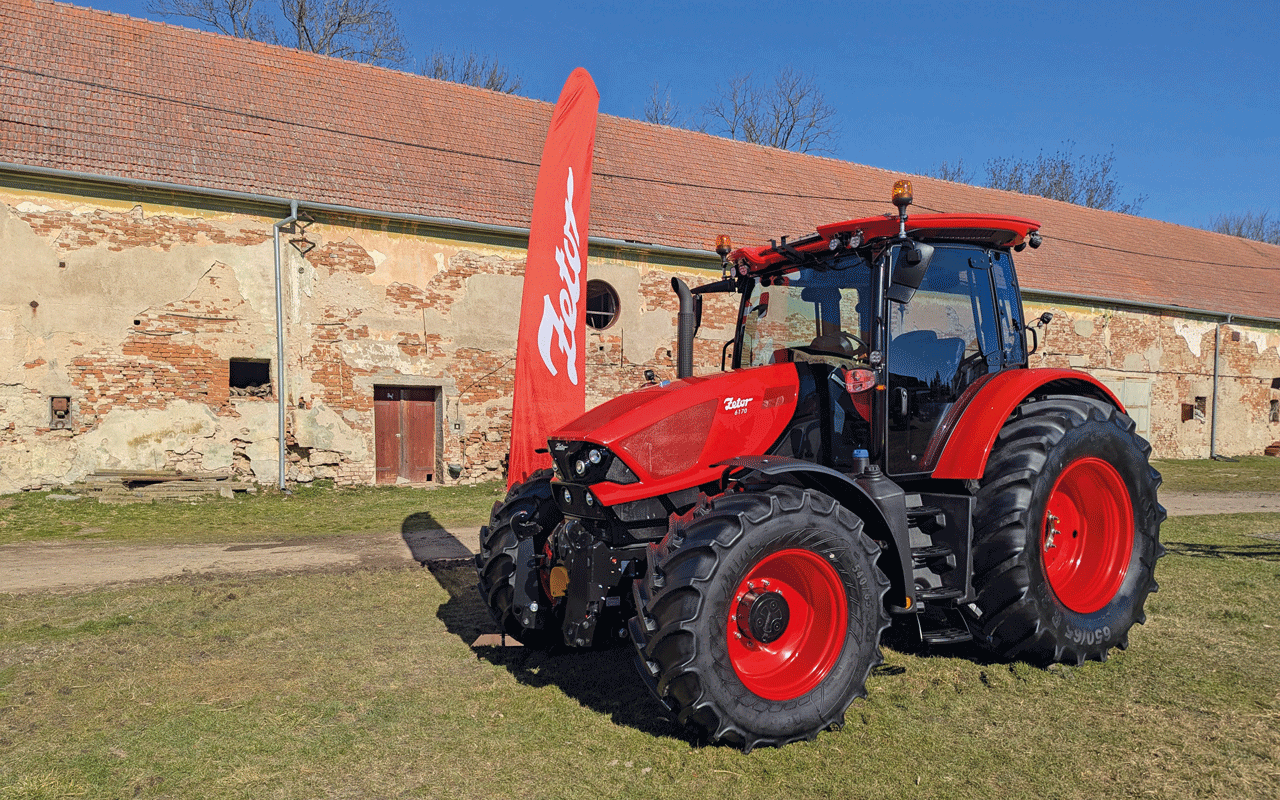
Collaborating in the UK
Implement manufacturers Rožmitál and SMS Agro are both actively looking for representation in the UK, working with Czech Farm Technology to organise a joint stand at this year’s Cereals Event to connect with dealers and customers.
Rožmitál has a long history in the Czech Republic, established in 1913 and moving into agricultural equipment in the 1940s. Until the dissolution of Czechoslovakia, the company reportedly had a monopoly on rakes and tedders in the country, but remains the market leader today and is now looking to increase exports.
CEO and director Lenka Janotová explains that the factory is kept at full production by working with other OEMs and businesses across the Czech Republic to produce bespoke products. This makes up about 30% of the turnover, and around 30% of its forage products are exported to 20 countries.
The product portfolio includes disc mowers from 2.03m up to 8.2m, built with an in-house-designed cutting bar and offered without a conditioner, with a tine conditioner or a brand-new roller conditioner. Tedders run from 2.7m up to 11.2m with between two and 10 rotors, and single- and twin-rotor rakes are also available, offering working widths up to 13.4m.
Nearly everything is done on-site, apart from heat-treating steel, with six-axis robotic welding units and 3D laser cutting.
Lenka adds that research and development is at the heart of the business, with new machines regularly being prototyped. The company hopes this approach will increase export potential, for which Rožmitál is taking a targeted approach.
“We’re focusing our attention on a new region each year,” explains Pavel Jahoda, sales director. “This year, the UK is where we want to increase sales. We previously had representation there and have just started working with Barcho Machinery in Wales.”
The portfolio is expanding as well, with a new range of balers, developed alongside a Polish company, which is currently only been offered in the Czech market, and a novel haybob with a single lever to switch the tines from tedding to raking.
The latest products include a roller conditioner for the mower range, with the bottom roller driven to minimise blockages. Rožmitál hasn’t fitted its own cutter bar to the machines, instead using a supplied unit while waiting for roller conditioner mowers to find a market.
The company is also working on a butterfly mower unit with a roller conditioner, which should become available in the next couple of years.
For the tedders, Lely-style hook tines have been added as an option on machines with the 1.35m-diameter rotors, with plans to extend availability to the 1.7m rotors.
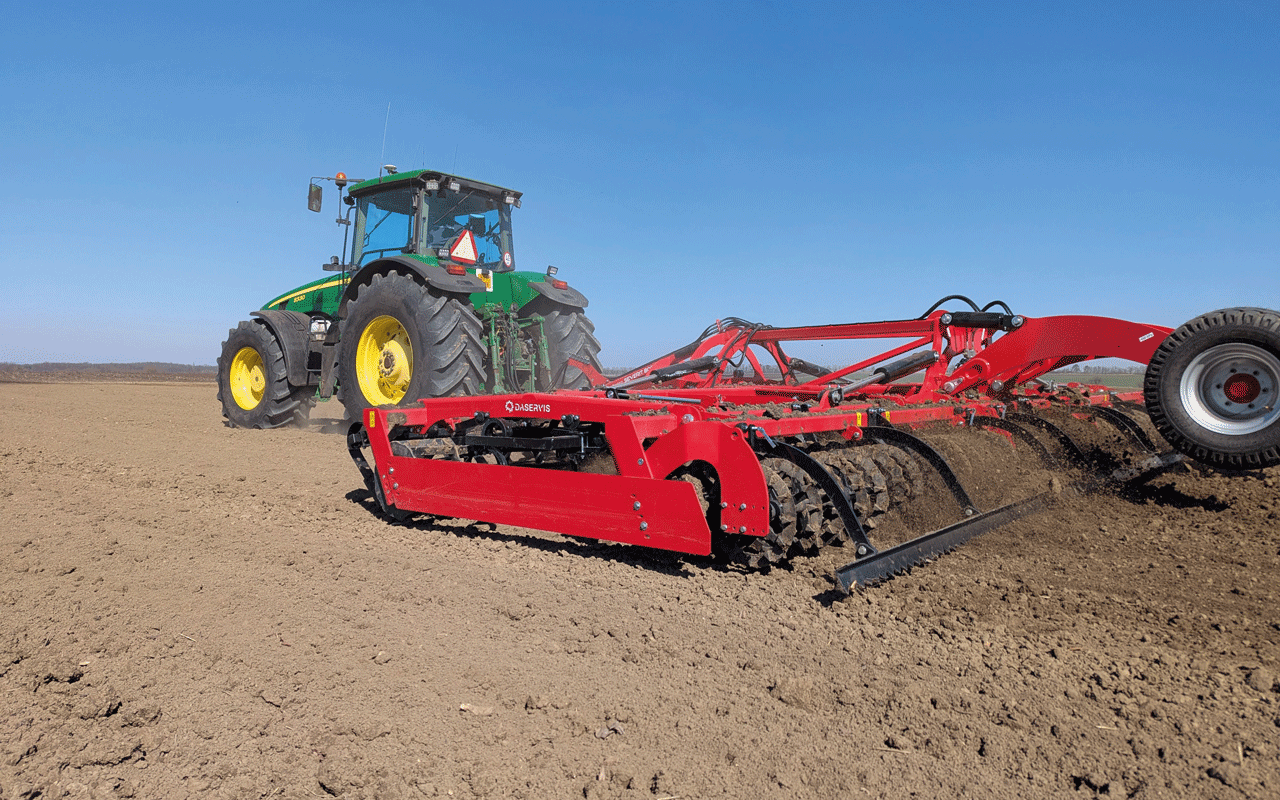
Czech cultivation
SMS Agro, or Smart Machinery Solutions, was founded in 1993 and is split into two divisions: waste incineration and environmental technology, and agricultural machinery. Implements are split between the Greenline portfolio for grassland overseeding and maintenance, and the Fieldline for cultivation and seeding.
During the event, SMS Agro announced a series of new products, including the Smart 400 overseeding drill, which can also be used for cereals. It’s a 4m semi-mounted version of the existing 3m machine, with hydraulic folding and the choice of a 500-litre or 800-litre hopper.
Across the working width, 32 125mm-diameter discs are mounted, with hydraulic depth control. It is completed with transport wheels and a prizm roller.
Managing director Petr Jirsa says: “We also have the ability to produce wider models in the future, and are actively looking to add 5m and 6m models to the range.”
A new mounted cultivator has also been added, with the Ontario available in 4m, 5m and 6m working widths. Two discs are mounted per holder, in diameters of either 510mm or 560mm, with hydraulic depth control.
Unlike previous generations, the distance between disc rows has been increased to handle greater levels of crop residue and the angle of the discs is alternated to create an X-pattern to minimise lateral pull.
On a larger scale, the Severit 1200 G is a shallow seedbed cultivator for tractors above 400hp, which will likely find a market in the US, Canada and eastern Europe, while the Talon Green is a grassland aerator that can work down to 35cm and is available in 3m and 4m working widths.
SMS Agro is also working with the Technology Agency and Research Institute of Agricultural Engineering to develop a camera-guided inter-row hoe.
Bespoke sprayers
Sprayer manufacturer Agrio was an interesting visit during the trip because the company is less focused on expanding exports, preferring a gradual rollout with established sales and support in place.
“It’s a balance,” explains Jan Kovařík, head of sales. “Our machines are built to customer specifications, rather than in serial production, so we prefer to stay close to our customers to ensure that there are no problems.”
There are few opportunities for any UK operators to get hold of an Agrio machine then, unless you’re an avid player of Farming Simulator 25. Still, Jan explains that the company has found great success as the largest sprayer manufacturer in the Czech Republic and one of the largest agricultural manufacturers in general in the country.
It has a comprehensive range of sprayers, from trailed machines, deck-mounted units for JCB Fastracs and Unimogs and self-propelleds, all available with a host of precision application equipment regardless of tank or boom size.
At the top of the range is the Dino self-propelled, which is now in its third generation, using a Claas Jaguar cabin and boasting a 6,600-litre tank and boom widths up to 36m. A key selling point for the machine, according to Jan, is the use of air bellows beneath the cabin to dampen undulations, combined with standard boom suspension and sprung axles.
It also offers an inside turning radius of just 4.55m, matching many of the top sprayers on the market.
The self-propelled Gekon is available with the same boom widths, but with a choice of tank sizes and the option of a hydraulically lifting chassis to increase crop clearance from 130cm up to 180cm.
Moving to the trailed machines, Agrio offers one of the largest models on the market. The Gigant is a twin-axle machine with tank sizes up to 14,000 litres. It is available with booms up to 36m, while retaining a sub-4m transport height.
The rest of the range includes the single-axle Mamut XL (up to 8,000 litres and 36m), the Mamut (6,500 litres and 36m), the Napa for medium-sized and smaller farms (3,900 litres and 30m), and the Alka (3,000 litres and 21m).
Machines are offered with automatic boom levelling, with +/- geometry available on the top specification, curve control to adjust application on the inside and outside of the boom width, and quad bodies with automatic nozzle adjustment to maintain application rates during speed changes.
Unlike many other companies, Agrio reported that 2024 had been a successful year, achieving a record turnover of €30m. It is now investing in its facilities, with new steel-bending machines, sand blasting and painting machines to increase output.
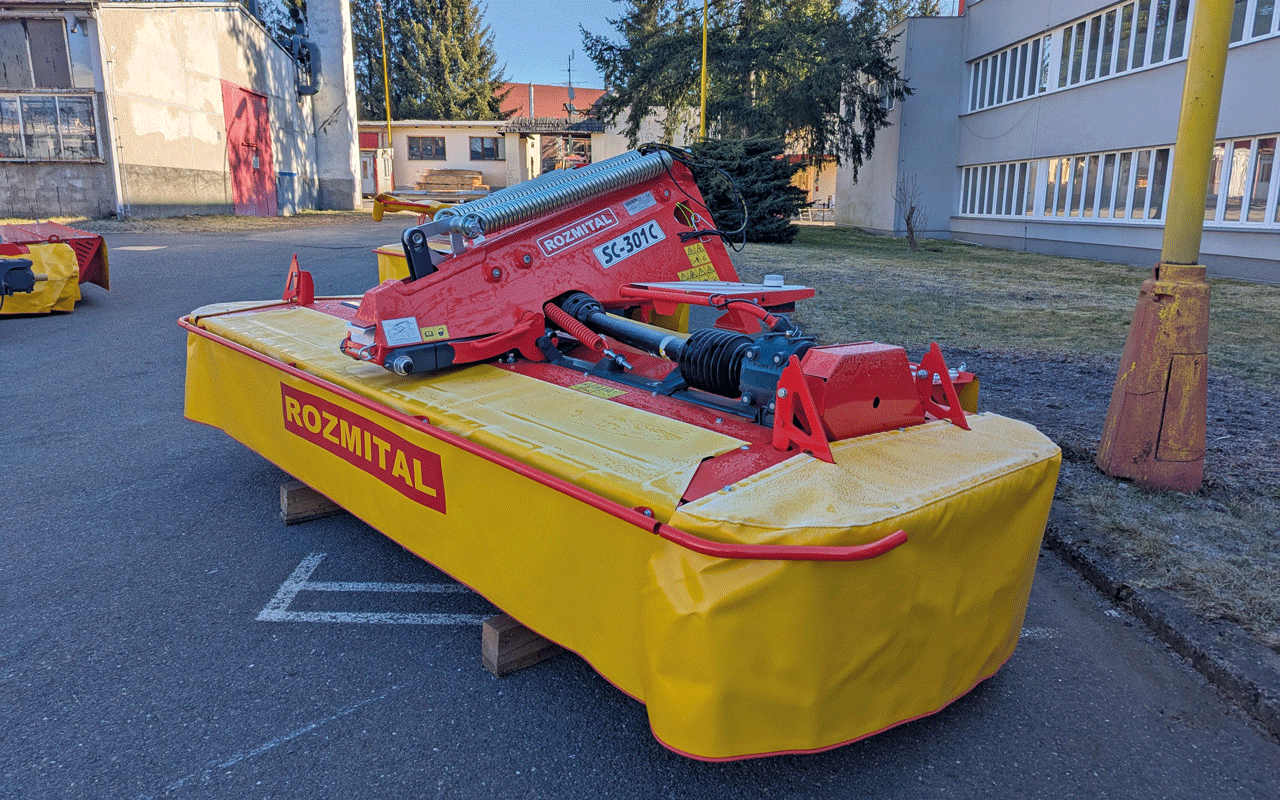
Diversified businesses
Farmet is another name that will be well known to UK growers, although the company is in the process of establishing a new dealer network over here. It was founded in 1992 by Karel Žďárský, and its first product was the Kompacktomat seedbed cultivator.
It now exports to 30 countries across the globe, making up around 90% of its €52.6m turnover in 2024.
The business is split into two distinct parts, with agricultural machinery making up 60 -70% of the turnover, while the company’s specialised oil production and feed business supplies bespoke machinery, including presses, to businesses. “This is generally long-term, high-cost projects, while the agricultural side is more consistent,” says Karel.
Much of what the company produces is built in-house, including the electronic control systems for its machines, and the automated processes across the factory. Each part of the production schedule is added to a central computer system, enabling full traceability and flexibility if certain products are in demand.
Full computer generation of the machines produced enable cultivators and drills to be virtually tested ahead of prototyping to find any stress points or weak spots.
To maximise the income from exports, the design of the machines has been optimised, allowing them to fit into shipping containers with easy reassembly in the dealer’s yard.
This has become increasingly important as the size of machines continues to increase, with the average cultivator now being at least 8m wide and the average Farmet drill exceeding 6m.
The in-house technology was part of the focus of the company’s product news. Having previously worked with Müller-Elektronik, now part of PTx Trimble, the company has developed Farmet Connect.
It is an iPad-based app that connects to a wi-fi module and Isobus module on the implement to enable quick and easy set-up of the drill, including control of seed and fertiliser metering, section control and tramline creation, an optional seed counting system and variable rate.
Operators can use the QR code that will be placed on each compatible machine to instantly bring up the relevant functions before set-up.
One of the first products to have this system will be the Falcon Compact, available in working widths from 3m up to 7.2m, with hydraulic folding to ensure a 3m transport width.
It is available with row spacings of 12.5cm, 15cm or 16.7cm, with a modular build under the frame for up to eight working elements, depending on customer specification.
The company also offers a three-year warranty on all its agricultural products.
